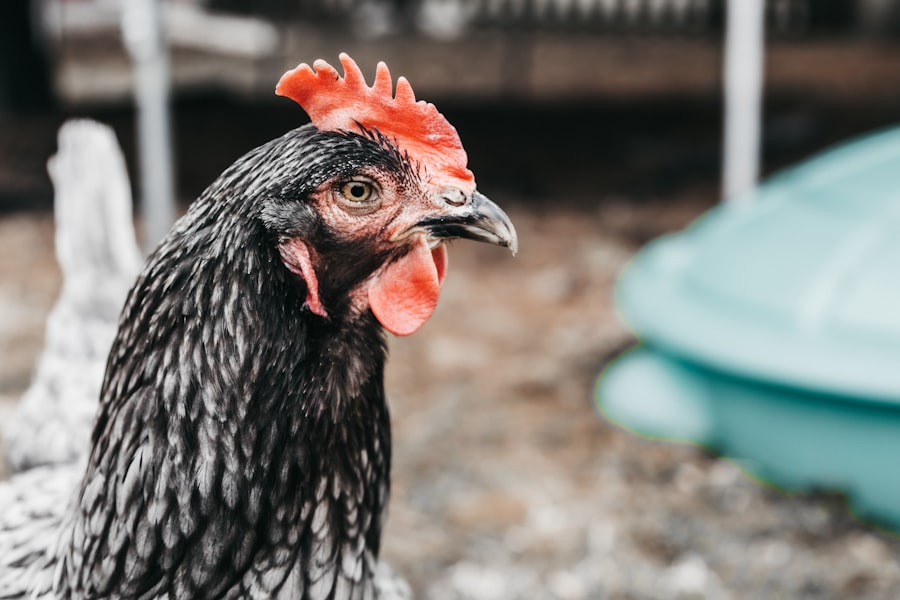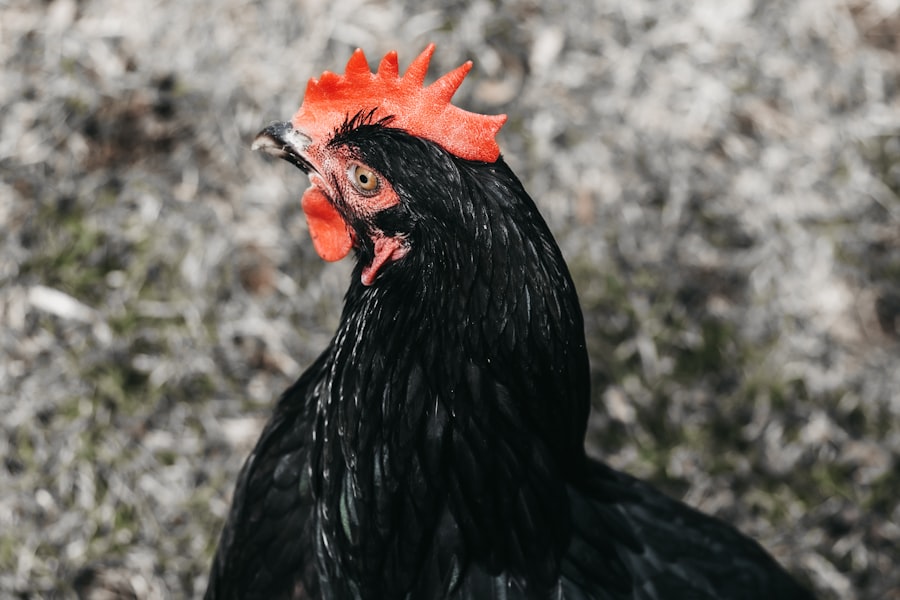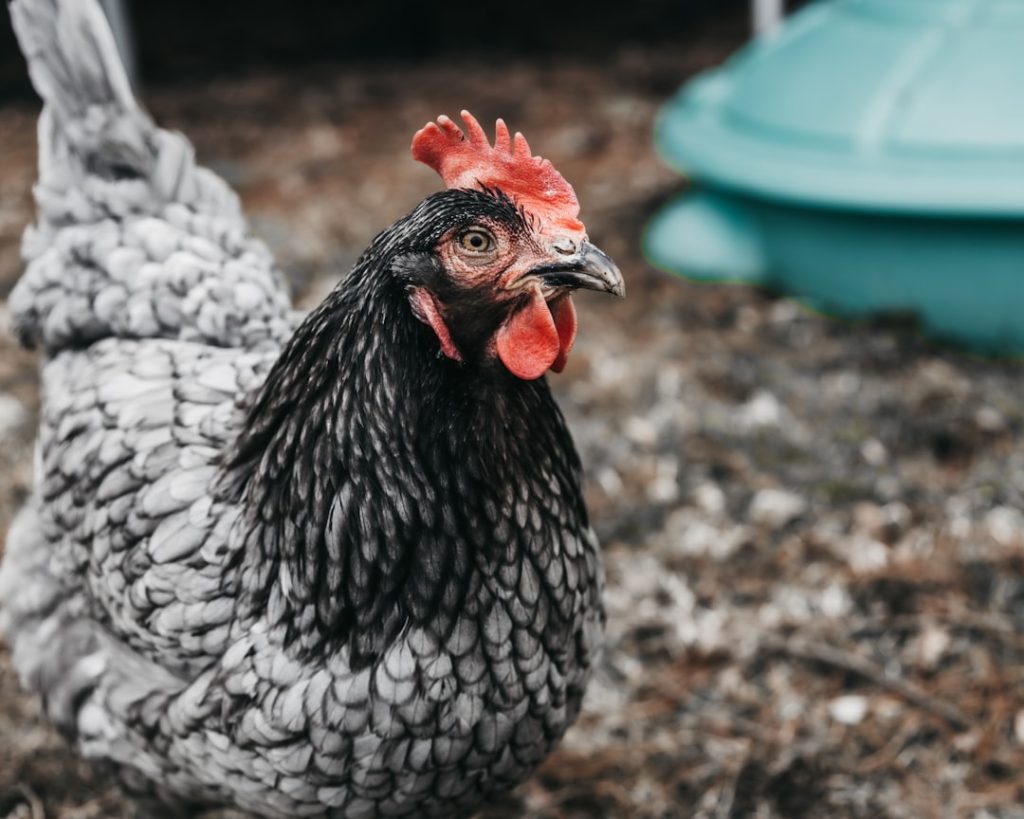Raising chickens can be a fulfilling endeavor for individuals seeking to produce eggs, meat, or keep them as companion animals. While chickens are generally low-maintenance, they require appropriate housing, adequate space, and proper care to ensure their well-being. This article examines the essential housing and space requirements for chicken keeping, including considerations for free-range environments.
Understanding these fundamental aspects is crucial for maintaining a healthy and productive flock. By implementing proper housing and space management, chicken keepers can create an optimal environment for their birds, promoting their overall health, happiness, and productivity.
Table of Contents
- 1 Housing Requirements for Chickens
- 2 Space Requirements for Keeping Chickens
- 3 Outdoor Space for Chickens
- 4 Indoor Space for Chickens
- 5 Considerations for Free-Range Chickens
- 6 Conclusion and Final Tips for Keeping Chickens
- 7 FAQs
- 7.1 What is the minimum space requirement for keeping chickens?
- 7.2 What are the factors to consider when determining the space needed for chickens?
- 7.3 How does the breed of the chickens affect the space requirement?
- 7.4 What are the consequences of not providing enough space for chickens?
- 7.5 Are there any legal requirements for the space needed to keep chickens?
Key Takeaways
- Keeping chickens can be a rewarding and sustainable hobby for many people.
- Proper housing is essential for keeping chickens safe and healthy.
- Chickens require adequate space to roam and forage in order to thrive.
- Outdoor space should include access to fresh air, sunlight, and protection from predators.
- Indoor space should be clean, well-ventilated, and provide roosting and nesting areas for chickens.
Housing Requirements for Chickens
Coop Requirements
When it comes to housing chickens, a safe and secure coop is essential to protect them from predators and the elements. The coop should be well-ventilated and provide enough space for the number of chickens in your flock. Additionally, the coop should have nesting boxes for the hens to lay their eggs, as well as roosting bars for the chickens to perch on at night. It’s also important to keep the coop clean and free of pests, as this can impact the health of your chickens. Lastly, the coop should have easy access for cleaning and collecting eggs.
Outdoor Run Requirements
In addition to the coop, chickens also need a secure outdoor run where they can stretch their legs and scratch around for food. The run should be enclosed with wire mesh to prevent predators from getting in, and it should provide at least 10 square feet of space per chicken. This outdoor space is essential for allowing the chickens to exhibit natural behaviors and get some fresh air and exercise.
Overall Housing Requirements
Overall, the housing requirements for chickens are relatively straightforward, but it’s important to ensure that the coop and run are well-designed and maintained to keep your chickens healthy and happy. By providing a safe, secure, and well-maintained housing environment, you can help ensure the health and well-being of your chickens.
Space Requirements for Keeping Chickens

Space requirements for keeping chickens are an important consideration when starting your own flock. Chickens need enough space to move around comfortably and exhibit natural behaviors such as scratching, dust bathing, and foraging for food. In general, it’s recommended to provide at least 2-3 square feet of indoor space per chicken in the coop, and at least 10 square feet of outdoor space per chicken in the run.
This will ensure that the chickens have enough room to move around and avoid overcrowding, which can lead to stress and behavioral issues. In addition to space for movement, it’s also important to consider the space needed for nesting boxes and roosting bars in the coop. Each hen will need a nesting box to lay her eggs, and there should be enough roosting space for all of the chickens to perch comfortably at night.
Providing adequate space for these essential activities will help keep your chickens healthy and productive. Overall, ensuring that your chickens have enough space is crucial for their well-being and overall happiness.
Outdoor Space for Chickens
Outdoor space is essential for keeping chickens healthy and happy. Chickens are natural foragers and enjoy scratching around in the dirt, hunting for bugs, and soaking up the sunshine. Providing a secure outdoor run for your chickens will allow them to exhibit these natural behaviors while also getting some exercise and fresh air.
When designing an outdoor space for your chickens, it’s important to consider factors such as predator protection, shade, and access to food and water. In terms of predator protection, the outdoor run should be enclosed with wire mesh to prevent predators such as foxes, raccoons, and birds of prey from getting in. Additionally, it’s important to provide some shade within the run to protect the chickens from extreme heat or inclement weather.
This can be achieved with natural shade from trees or by adding a covered area within the run. Lastly, make sure that your chickens have access to food and water in the outdoor space so that they can stay hydrated and well-fed throughout the day. By providing a well-designed outdoor space for your chickens, you can ensure that they have a safe and enjoyable environment to spend their time in.
Indoor Space for Chickens
In addition to outdoor space, chickens also need adequate indoor space in their coop. The indoor space should provide enough room for the chickens to move around comfortably, as well as space for nesting boxes and roosting bars. It’s recommended to provide at least 2-3 square feet of indoor space per chicken in the coop to prevent overcrowding and allow for natural behaviors such as dust bathing and preening.
When designing the indoor space for your chickens, it’s important to consider factors such as ventilation, lighting, and cleanliness. Proper ventilation is essential for maintaining good air quality within the coop and preventing respiratory issues in the chickens. Additionally, providing natural or artificial lighting can help regulate the chickens’ egg production and overall health.
Lastly, keeping the indoor space clean and free of pests is crucial for preventing disease and maintaining the well-being of your flock. By ensuring that your chickens have enough indoor space that is well-ventilated, well-lit, and clean, you can create a comfortable and healthy living environment for them.
Considerations for Free-Range Chickens

Monitoring Behavior and Health
Regular monitoring of your chickens’ behavior and health is vital when allowing them to free-range. This helps ensure they are thriving in their environment and allows you to identify any potential issues early on.
Providing Enrichment Opportunities
Providing enrichment opportunities such as perches, dust bathing areas, and natural vegetation can help keep free-range chickens stimulated and content. This is essential for their overall well-being and can help prevent boredom and stress.
Ensuring a Rewarding Experience
Raising free-range chickens can be a rewarding experience, but it’s essential to carefully consider factors such as predator protection, access to resources, and enrichment opportunities. By doing so, you can ensure your chickens are safe, happy, and thriving in their environment.
Conclusion and Final Tips for Keeping Chickens
In conclusion, keeping chickens can be a fulfilling endeavor that provides fresh eggs, meat, or simply companionship. When considering housing and space requirements for keeping chickens, it’s important to prioritize factors such as predator protection, ventilation, cleanliness, and access to food and water. By providing a well-designed coop and outdoor run with adequate space for your chickens to move around comfortably, you can create a safe and enjoyable environment for them to thrive in.
Some final tips for keeping chickens include regularly cleaning the coop and run to prevent disease, providing a balanced diet with access to fresh water at all times, monitoring your chickens’ health and behavior regularly, and seeking advice from experienced chicken keepers or veterinarians when needed. By following these tips and considering the housing and space requirements outlined in this article, you can ensure that your chickens are healthy, happy, and productive members of your household or farm.
If you’re considering keeping chickens, you may be wondering how much room you need for them. According to a helpful article on Poultry Wizard, the size of your chicken coop is an important factor in keeping your chickens healthy and happy. The article provides valuable information on chicken coop interior ideas and portage, offering practical tips for creating a comfortable living space for your feathered friends. For more insights on how to best care for your chickens, check out the article here.
FAQs
What is the minimum space requirement for keeping chickens?
The minimum space requirement for keeping chickens is 2-3 square feet per bird inside the coop, and 8-10 square feet per bird in an outdoor run.
What are the factors to consider when determining the space needed for chickens?
Factors to consider when determining the space needed for chickens include the breed of the chickens, the size of the coop and outdoor run, and the amount of time the chickens will spend outside.
How does the breed of the chickens affect the space requirement?
Different breeds of chickens have different space requirements. Larger breeds require more space than smaller breeds. It’s important to research the specific space needs of the breed you plan to keep.
What are the consequences of not providing enough space for chickens?
Not providing enough space for chickens can lead to stress, aggression, and health issues. Overcrowding can also increase the risk of disease and decrease egg production.
Are there any legal requirements for the space needed to keep chickens?
Local regulations and zoning laws may dictate the minimum space requirements for keeping chickens. It’s important to check with local authorities before setting up a chicken coop.
Meet Walter, the feathered-friend fanatic of Florida! Nestled in the sunshine state, Walter struts through life with his feathered companions, clucking his way to happiness. With a coop that’s fancier than a five-star hotel, he’s the Don Juan of the chicken world. When he’s not teaching his hens to do the cha-cha, you’ll find him in a heated debate with his prized rooster, Sir Clucks-a-Lot. Walter’s poultry passion is no yolk; he’s the sunny-side-up guy you never knew you needed in your flock of friends!







